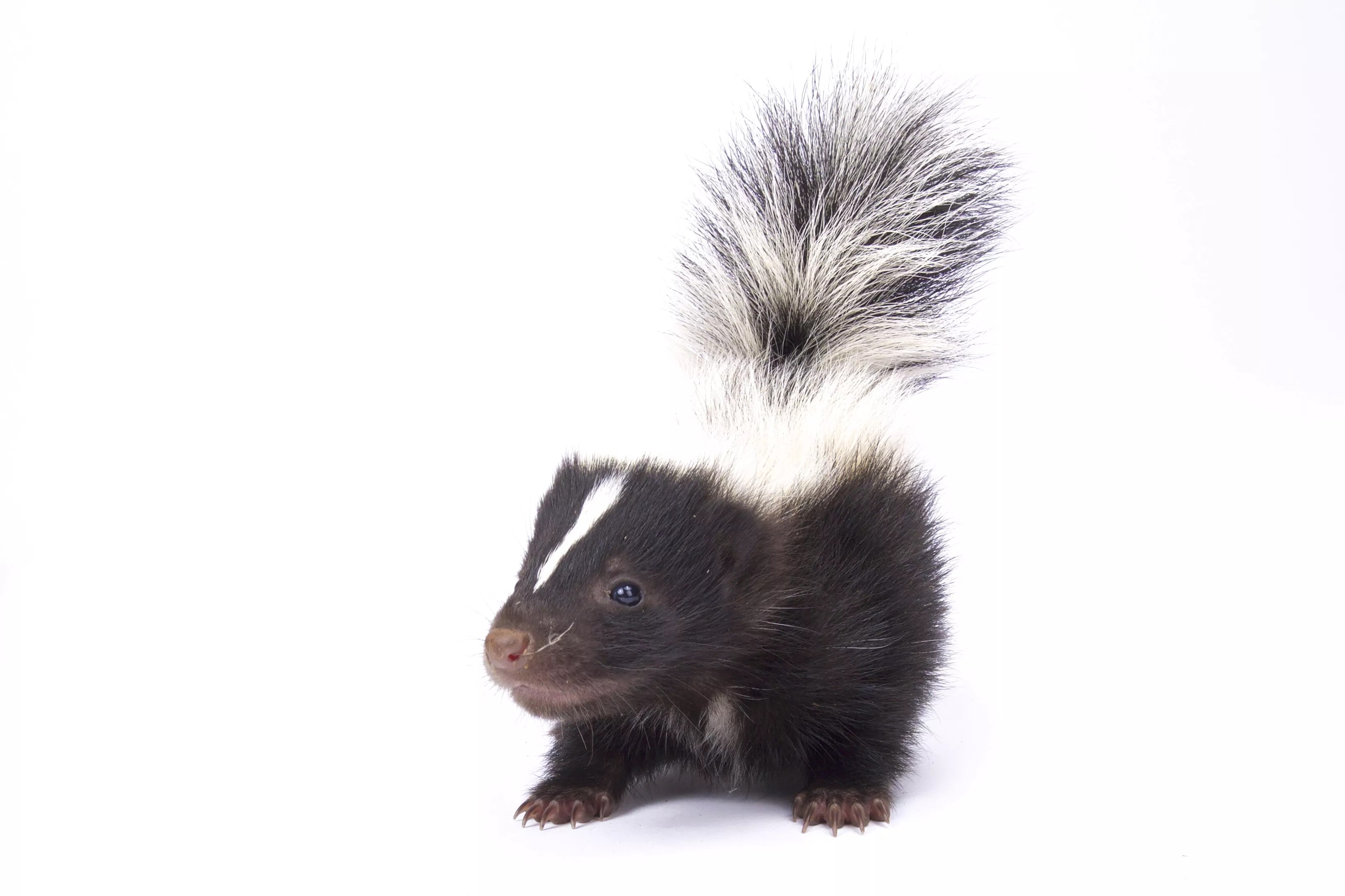
iStock/reptiles4all

Audio By Carbonatix
What’s black and white and all over Red Rocks?
Lately, it seems everyone’s favorite stinky black-and-white mammals have been making appearances at the famed concert venue – and no, the Skunks are not a punk band.
Several reports of skunks entering Red Rocks as patrons are leaving concerts led Westword to conduct an informal social-media poll that undergirded our suspicions – and brought many, many questions about whether or not the poll was a bad pot joke.
“Scouts’ honor, we saw at least twelve after the STS9 show Friday. It was after the crowds were all gone, and as we walked from downstairs backstage up to the top; there were like twelve or more all over the place, combing through trash. Suckers are hopped up on goofballs and stale nachos. They were EVERYWHERE,” Matt Davis says via Facebook. Davis’s friend, Joshua Love, supports his claim and adds to the experience: “Living in the hills right outside Red Rocks for years I have seen my fair share of skunks but never like this…They did not seem in the least bit fazed by our presence, as they seemed to be lured by the enticing beer and nachos spread under the seats of the stands.”
Were the skunks practicing moderation better than STS9 fans? Probably. But there is no data to prove it.
Others remarked about a skunk trying to enter stairs at a recent show and the crowd parting “like minnows avoiding a shark.”
Liz Kotalik from 9News posted the video below to her Instagram story on September 10, 2018.
Since Red Rocks is a mountain park, it’s not too surprising that skunks – or deer or rabbits or coyotes or rattlesnakes – would be nearby and occasionally meander to where music fans are.
Brian Kitts, director of marketing and communications for Denver Arts & Venues, maintains that there’s nothing that would point to an increase in skunks.
“We actually don’t keep statistics, because the animals are there every single minute of every day,” he says, noting that during summer 2016, a bear was seen via videotape roaming around backstage sniffing stuff before moseying away.
Skunks are crepuscular, which means they are most active at dawn and dusk, making them wide awake during the time most concerts are starting. They are also omnivores “in the truest sense of the word, and they have become scavengers for garbage,” says Dr. Kevin Fitzgerald, a former Rolling Stones and Grateful Dead roadie who’s also an Animal Planet star, a comedian, and veterinarian at Alameda East Veterinary Hospital.
In addition to being a specialist in urban wildlife, Fitzgerald spent much of his time working security and other jobs at Red Rocks from 1971 to 1984 and notes that the “olfactory-driven” animals are nothing new to the area.
“I’ve stayed overnight many times at Red Rocks. Skunks are there, and skunks have been there the whole time,” he says. “As we move into these areas where these animals have lived, we’re the intruders. The skunks have just learned about garbage cans.”
But even during the mass exodus that is the end of a Red Rocks concert? And in packs? More than anything, the real story here might be about more trash, less habitat and an emboldened local skunk population than it is about an increased number of skunks.
Fitzgerald says animals in general that have more experience around humans become emboldened, but skunks can be bold animals anyway, especially with pets or if they have young nearby. They are also one of four animals in Colorado that can carry rabies (raccoons, bats and foxes are the other three), and there was a breakout of rabid skunks this spring in southwest Denver.
“Skunks have a great sense of smell, great sense of hearing, but poor vision,” Fitzgerald says, adding that if you encounter a skunk you should go the other way. “Do not approach them. They don’t like to spray, because it takes them about fourteen days to recover,” he says.
And it’s probably worth taking his advice: “Someone ‘getting skunked’ hasn’t ever happened,” at Red Rocks, Kitts says. “We always hope humans have the decency and common sense to stay away from our furrier friends, but…”